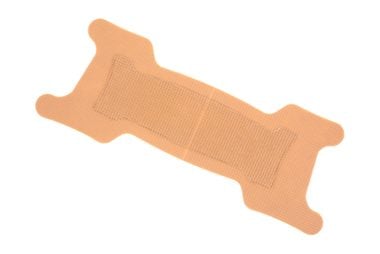
Change positions
Sleeping on your back causes the base of your tongue to fall backward into your throat, which narrows your airway. So try sleeping on your side. If you find yourself still waking up on your back, prop your head up on several pillows. This will open up your nasal airway passages and may help you stop snoring. These are the best sleeping positions to solve everyday health problems.

Lose weight
Extra weight around the throat narrows the airway, which can trigger snoring. Shedding extra pounds can remedy the problem. Try these fast, easy tips to lose weight.

Avoid alcohol and sedatives
They depress your central nervous system, causing your muscles—which include the tissues in your throat—to relax too much. So avoid drinking alcohol at least two hours before bedtime, and exercise caution when taking sedatives.

Get enough sleep
If you’re overtired when you hit the sack, you sleep more deeply and your muscles become more limp, which can cause snoring. So be sure to get enough rest on a regular basis! Sleep doctors share the secrets to a better night’s rest.

Try over-the-counter nasal strips
Strips open up your nasal passage, thus enhancing your breathing. Give these other home remedies for snoring a try as well.

Fight nasal congestion
Congestion due to colds, allergies, or a deviated septum can limit airflow through your nose, forcing you to breathe through your mouth and increasing the likelihood of snoring. Try taking a hot shower before you go to bed to help open up your nasal passages. Using an oral or spray decongestant also can help, but see your doctor before such medications more than three days in a row. (Long-term use of decongestants can have a rebound effect and eventually make your congestion worse.) Your doctor may prescribe you a steroid spray for chronic congestion. Or, if you have a deviated septum, you may need surgery. These are other reasons that you always have the sniffles.

Remove allergens in your bedroom
Dust mites in pillows can cause allergic reactions that in turn can make you snore. So wash your pillows every other week, and replace them every six months to minimize dust mites and allergens. Dust your ceiling fan, and keep pets out of your bedroom. Make sure to also watch out for these other things you didn’t know you could be allergic to.

Hydrate
Secretions in your nose become stickier when you’re dehydrated, which can cause you to snore. So drink plenty of water. These are ways you can easily sneak enough water into your everyday routine.

Rule out a more serious condition
If you’ve tried all of the above changes and you still snore, see your doctor. Your snoring may have a more serious cause, such as obstructive sleep apnea, a condition in which your throat tissues obstruct your airway and prevent you from breathing. With proper diagnosis, sleep apnea can be effectively treated.

Watch what you eat before bed
What you eat before going to bed can make snoring worse. Avoid large meals right before your head hits the pillow. Make sure you eat dinner a few hours before going to bed. Also, avoid certain foods such as dairy and soy milk. Another reason to avoid eating late at night: It makes you gain weight.

Keep the air moist
If the air in your bedroom is dry, it can irritate membranes in the nose and throat causing them to swell and make you snore. Use a humidifier in your bedroom at night to make sure the air stays moist.
Sources: WebMD.com, mayoclinic.com